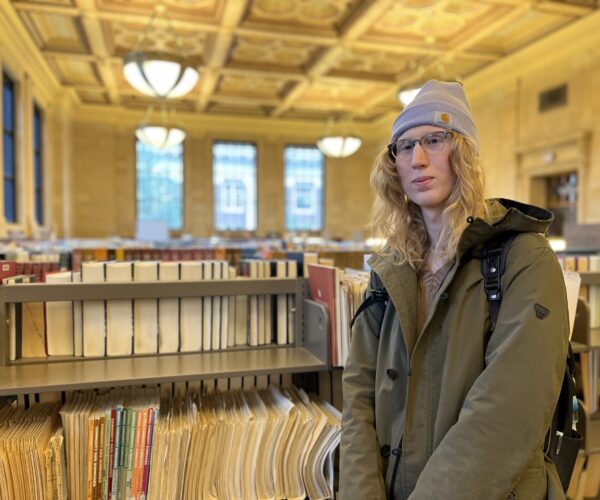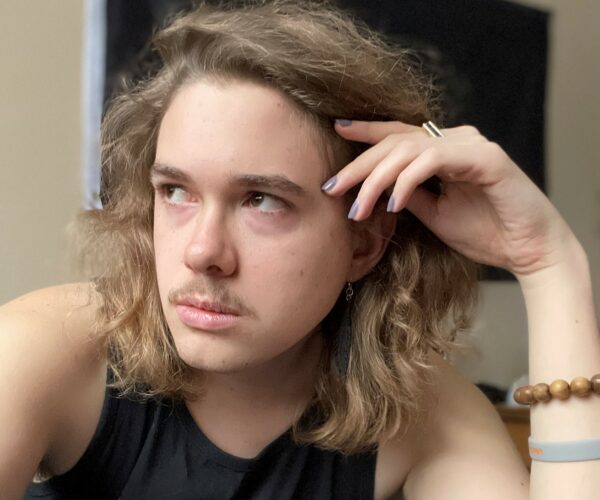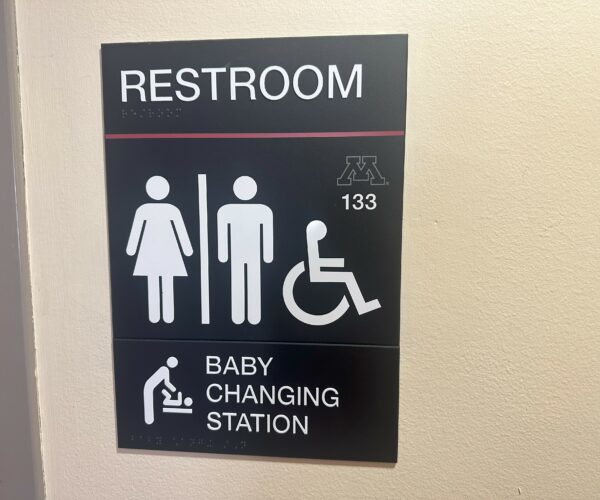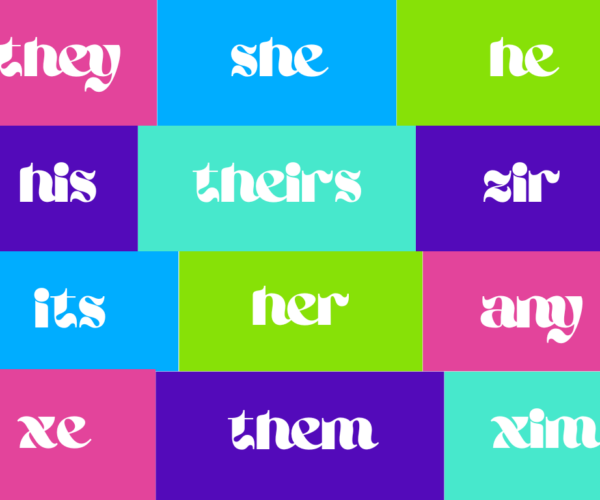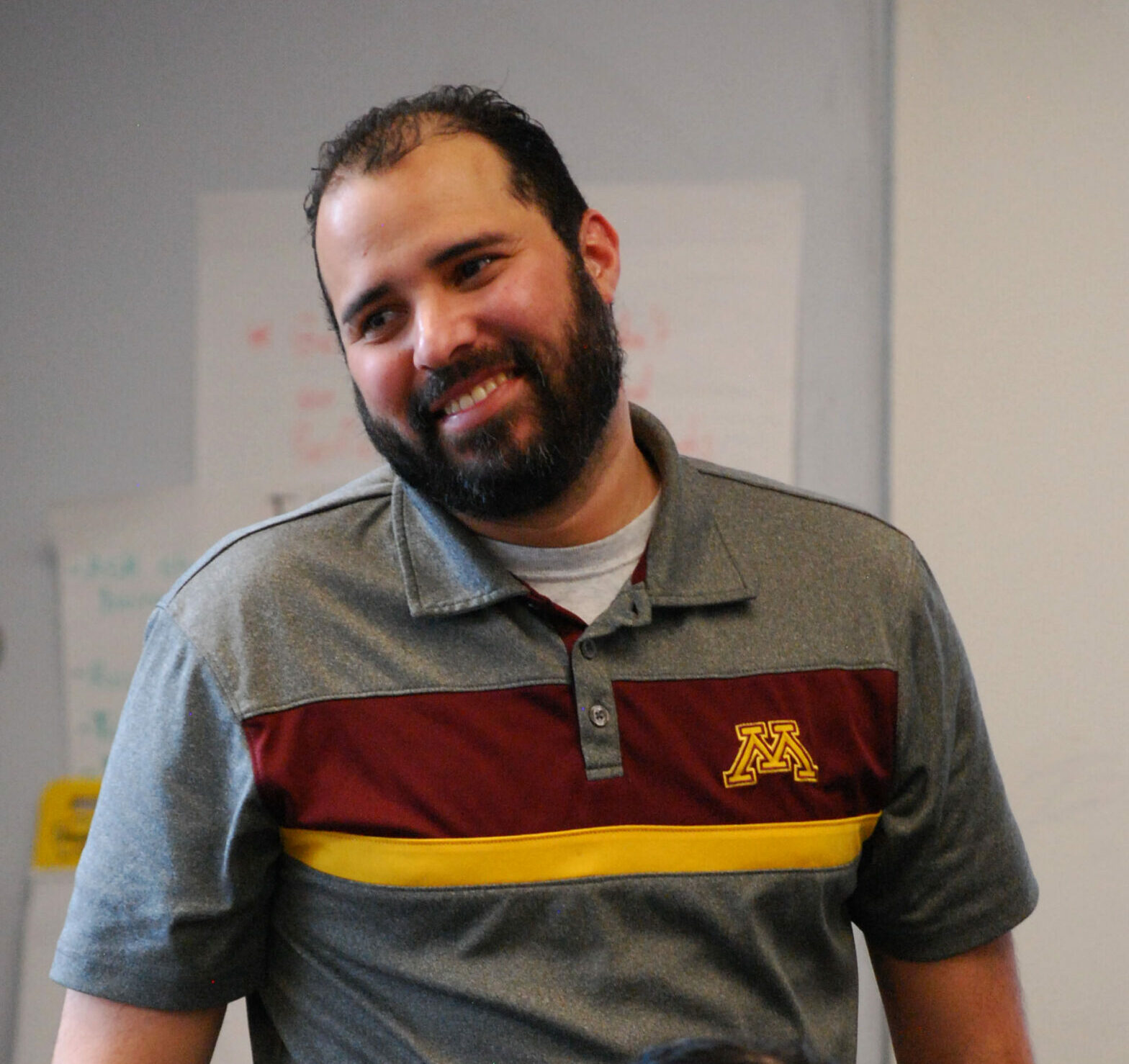By Andrew Kicmol
When Fernando Gonzalez Lesniak started at the University of Minnesota as a graduate student in the curriculum and instruction department, he didn’t know he was going to focus on teaching language in an inclusive and expansive way.
Lesniak was focused on teacher education and social justice. But in 2021 a student in his Spanish class told him the Spanish language, which is highly gendered, felt unsafe. Before that interaction, Lesniak had never thought about gendered language.
“I always tell people I identify as gay. But I have always used gender masculine pronouns, he/him,” Lesniak said.
Lesniak then started researching inclusive language in Spanish. The process helped him gain more insight into the discomfort others in the queer community may experience when confronted with nothing but binary choices in a language.
Lesniak then became one of the founders of LangIn, an inclusive language instruction student organization that aims to advance the instruction inclusive language through research and examples.
“I want to make sure that I use all the knowledge that I can to bring forward all of those curricular reforms that need to happen in schools and Spanish curriculums in the U.S. with the most accurate information,” Lesniak said. “So that’s why I’m conducting the research.”
Born in Panama, Lesniak was introduced to gender-neutral language when he came to the U.S. in 2010 and joined an LGBTQ+ resource group.
“Everybody was to say their pronouns. That was a concept that was foreign to me,” Lesniak said. “ “I just thought, OK, it is a thing in English.
Even now, inclusive language sometimes can be surprisingly challenging after so many years of using a binary language without thinking about it.
“I have to acknowledge that this problem or the issue with language inclusivity is sometimes a little bit foreign to me. I have always been OK with a binary pronoun system,” Lesniak said. “So I have come to learn a lot from all the scholars who do identify as gender non-binary.”
Since then, Lesniak has shifted his research and approach to social justice to teaching to include everyone.
“As somebody who is a member of the LGBTQ community, I felt that I really wanted to be part of this research, because I have been part of that community that has been marginalized before,” Lesniak said.
The shift has opened his research to new perspectives, Lesniak said: It’s not just about introducing gender-neutral pronouns; it’s about teaching why it’s important and the cultural aspects that come with it. Queer communities around the world are targeted and threatened.
“Teaching the language, but also teaching the culture. I think that bringing those issues about what’s happening in other Spanish speaking countries and in general try to educate our students,” Lesniak said. “This is what I am learning and what I’m trying to accomplish in the future.”
Lesniak said inclusive language is important to students, and they’re ready for the discussion.
“Students are ready to have these discussions, this critical thinking experiences to discussing about gender issues that we can see every day,” Lesniak said. “That is when I started really getting in tune with the issues of social justice that that inclusive language brings.”
Lesniak plans to start his dissertation this summer and said he hopes to earn his doctorate in fall 2024. After that his goal is to get a teaching job at a university within range of Minneapolis.
Wherever he ends up, he will keep researching and learning about inclusive and expansive language, he said.
“I have found it very fascinating, and it is really fulfilling the fact that I am learning so much through what I’m reading, what I’m doing, and it is also very humbling to be able to understand and listen to the people that I am try to conduct this research,” Lesniak said. “The situation from the voices of people that are going through this problem, that are facing these inequalities and inequities in their daily life.”
